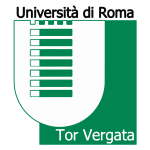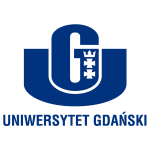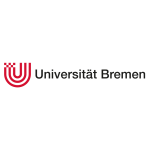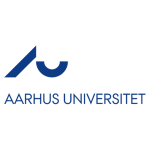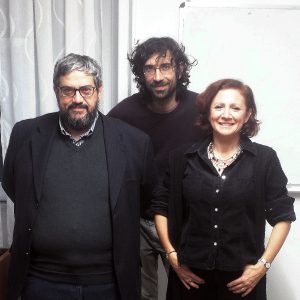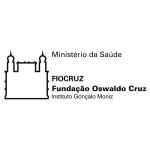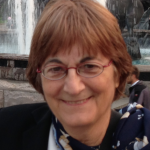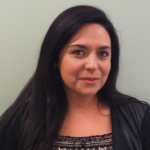STARBIOS2 CONSORTIUM
European Partners implementing Action Plans
The University started its activities in 1982 and is now comprised of 7 faculties. UNITOV is the 9th largest Italian university according to the Italian ranking. The QS World University Rankings Top University 2013 ranked UNITOV 7th among Italian Universities and 33rd in the world (QS World University Top 50 2014).
The Departement of Biology at UNITOV was established in 1983 and over the past 30 years has developed a multidisciplinary platform that studies life at all levels of biological organization in a variety of organisms, viruses, bacteria, plants, animals and humans. The Department’s mission is to address the key issues at the forefront of modern biology such as:
- molecular mechanisms of the immune system in response to pathogens (e.g. HIV, M. tuberculosis),
- regulation of processes of tumorigenesis, apoptosis, autophagy
- characterization of natural molecules in plants and animals, biotech molecules
- assessment of ecological communities
- biotechnology
The Department is directed by Prof. Olga Rickards. The staff comprises 43 researchers (26 females, 17 males), 16 associate professors (7 females, 9 males) and 21 full professors (8 females, 13 males).
The members of the team will develop and implement activities aimed at fostering structural changes conducive of an RRI-oriented approach in the Department of Biology. They will be involved also in the activities of the learning process all over the project and in the final RRI bioscience model.
UNITOV is also Responsible of the Ethics requirements.
Coordinator of STARBIOS2 project.
Role in STARBIOS2

PhD in immunology, assistant professor at the University of Rome, Tor Vergata. Dr. Montesano’s research focuses on the study of host-pathogens of infectious diseases, such as HIV, tuberculosis, hepatitis B and C and leishmaniosis, and their implications for the development of therapeutic, vaccine, and diagnostic strategies. She has coordinated and teached training courses on technology transfer in developing countries, immunology of infectious diseases, and innovative technology for diagnosis and monitoring of infections. Dr. Montesano was the European Union consultant for organization and re-qualificating of the Benghazi Centre for Infectious Diseases and Immunology in Libya.
The Oxford Biomedical Research Center (BRC) is one of 11 biomedical research centres funded via competition by the National Institute for Health Research (NIHR) which aim to innovate health care in the UK. The BRC is the home of translational medicine and societal research interactions linking MSD with Oxford University Hospitals Trust. It is an ideal focus for identifying opportunities for structural changes with respect to RRI.
The Centre has some relevant strategies in place (such as the Patient and Public Involvement strategy and bespoke ethics research) and is enthusiastic about developing more – particularly around gender equality and the sustainability of changes. The Centre presents a model location to trial and test strategies for cultural and structural improvements which can then be applied to MSD, other BRCs and Biomedical Research Units within the UK and beyond.
Dr. Edmunds is responsible for managing all aspects of the research, reporting and dissemination in WP3. Her team includes members of the NIHR Oxford BRC and relevant researchers across Oxford University.
Role in STARBIOS2

Laurel is a Senior Research Fellow in the NIHR Oxford Biomedical Research Centre (translational medicine) at the University of Oxford. She has a varied research background which includes managing evaluations of complex interventions, devising new quantitative instruments and has an international reputation as a qualitative researcher.
She has been a Specialist Advisor and Co-opted Expert to the UK Parliament’s Health Select Committee and the National Institute for Clinical Health and Excellence respectively. She managed the FP7 project HealthTIES (Healthcare Technology and Innovation for Economic Success).
She is interested in workplace psychology, and is currently leading on a series of systematic reviews evaluating women in academic medicine and research efficacy in the NIHR Oxford BRC.
Dr. Pavel Oseiko

Pavel is involved in the gender-based tasks and publications
Email:
Dr. Vasiliki Kiparoglou
Vasiliki is involved in tasks for the BRC, reporting and publications.
Email:
Dr Lorna Henderson

Lorna is involved in tasks for the BRC, reporting, and publications.
Email:
Dr Maria Julia Milano

Research Assistant.
Email:
Dr. Rinita Dam

Research Fellow in Responsible Research & Innovation
Email:
Dr. Syed G. Sarwar Shah
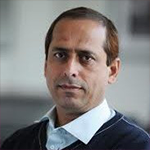
Researcher (NHR Oxford Biomedical Research Centre)
Responsible/Lead for Stream of Actions on Societal Engagement and Open Access at the University of Oxford
Email:
Neal Thurley & Owen Coxall
Librarians supporting the project
ABI is well equipped for the development and application of various molecular markers and methods of characterization of genetic resources and biodiversity, as well as for gene cloning, expression, and transgenic research. Research Units work on the following: plan genetic resources, abiotic stress and ecophysiology, biotic stress and phytopathology, functional genetics (cereals, legumes), molecular genetics.
ABI has been selected Centre of Excellence in Plant Biotechnology by the European Commission (1999) and by the Bulgarian Ministry of Education (2009). It is the only institute in Bulgaria which activities are evaluated and guided by an International Consultative Council since 1987.
Leader of group “Abiotic stress tolerance in plants” in ABI Professional Experience – physiological, biochemical and molecular studies in plants abiotic stress tolerance, plant transformation and gene expression for accumulation of osmoprotectants for increased abiotic stress tolerance, complex studies on resurrection plants as models of extreme desiccation tolerance, biosafety systems for GMO studies under contained conditions.
Long-term fellowships in The Netherlands, Belgium and Japan. Leader of the Bulgarian participants’ group in several projects funded locally or by the EU in F5P, F6P and F7P.
Additional Activities: Member the Board of Governors of ICGEB, the Scientific Network of GMO Council, EFSA and the GMO Consultative group – the Ministry of Environment and Waters.
Dr. Moyankova will serve as sub-coordinator of the project. She will be involved in all tasks of the project.
Email:
Dr. Krasimir Rusanov
Dr. Rusanov will be responsible for the web page of the Plant Biotech Information Center.
Email:
Prof. Rossitza Batchvarova, DSc
Prof. Bachvarova is a Director of ABI. She will be involved in the scientific and organizational issues of the project in ABI.
Email:
Mr. Marian Minchev, MBA
Mr. Minchev is Administrative Director of ABI. He will be responsible for all organizational issues of the project in ABI.
Email:
In 2008, the University of Primorska, together with other Slovenian universities, signed the European Charter for Researchers and the Code of Conduct for the Recruitment of Researchers. UP is also involved in the European Group for Human Resources.
Dr. Elena Buzan is responsible for the societal engagement of UP, for the technology transfer and regulation of policy regarding intellectual property, for promoting gender equality, and for the importance of Open access and ethic knowledge in the bioresearch.
Role in STARBIOS2

In 2007, she completed the doctoral dissertation on Biotehnical faculty, University of Ljubljana.
She is member International consortium for Biodiversity research (IBISCOS) (2012) and Biochemistry Society and Genetic Society of Slovenia (since 2010). Now, she is Head of department for Biodiversity and coordinator of study programme Biodiversity and Nature Conservation at Faculty of Mathematics, Natural Sciences and Information Technologie at University of Primorska.
She was project leader on several International projects: EU FP7 – MEDA GO TO EUROPE; DIVA (INTEREG) and BIODINET – (INTEREG) national projects and signer of bilateral agreements. Her fields of interest are Molecular biology, Biochemistry, Conservation biology, Population and Conservation genetics; Phylogeography/Phylogeny.
Dr.Katja Kalan
Sandra Potušek
Felicita Urzi
Sara Zupan
The Intercollegiate Faculty of Biotechnology of University of Gdansk and Medical University of Gdansk (IFB) is a leading research and teaching institution that has the status of European Centre of Excellence in Molecular Biomedicine since 2002. In 2014, IFB was granted category A status by the Ministry of Science and Higher Education and earned the 3rd rank in Poland. IFB provides courses in biology, biotechnology and microbiology.
In the framework of FP7 project MOBI4Health, the Faculty created a team responsible for the facilitation of technology transfer and innovation. The team also strengthened the relations with society through an increased engagement in open access practice and dissemination within different groups of society.
Prof. Krzysztof Bielawski coordinates WP7 and supervises all actions related to the implementation of the STARBIOS2 Action Plan at the University of Gdańsk.
Role in STARBIOS2
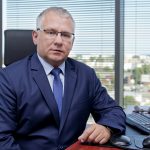
Professor at IFB,Vice-Rector for Development at University of Gdańsk (UG) PhD in medical biology and D.Sc. in biological sciences; full-professor in biological sciences (2011).
Experience in management: investigator in 20 research projects, project leader in 11 research projects; recently, coordinator of FP7 project MOBI4Health, leader of Polish team in Infect-ERA project HepBccc.
Experience in technology transfer: Director of Technology Transfer Office at UG; CEO of the Centre for Research & Commercialization of New Technologies (2014-2016).
Experience in grant evaluation: EU FP7, H2020, Polish funding agencies; reviewer of approx. 50 grant proposals and 100 reports. Vice-President of ScanBalt Association, Council member of European Society for Translational Antiviral Research (ESAR).
Prof. Krzysztof Bielawski
Coordinating STARBIOS2 activities at University of Gdansk
Prof. Jerzy Gwizdała
Rector of the University of Gdańsk, professor of management studies and risk management
Prof. Stanisław Ołdziej
Deputy Dean of Intercollegiate Faculty of Biotechnology of University of Gdansk and Medical University of Gdansk (IFB) for Development
Prof. Ewa Łojkowska
Head of Laboratory of Plant Protection and Biotechnology at IFB
Izabela Raszczyk
MBA, project manager, STARBIOS2 deputy project leader at UG
Marta Dziedzic
Information Officer, team member
EXTENDED TEAM
Dr. Karol Śledzik
Director of Technology Transfer Office, supports the aspects of Societal Engagement related to technology transfer in bioscience
Dr. Magdalena Żadkowska
Social sciences expert, supports STARBIOS2 activities related to Gender
Dr. Natasza Kosakowska-Berezecka
Social sciences expert, supports STARBIOS2 activities related to Gender
Dr. Sylwia Mrozowska
Social sciences expert, supports STARBIOS2 activities related to Societal engagement
Dr. Barbara Kijewska
Social sciences expert, supports STARBIOS2 activities related to Societal engagement
The Faculty of Biology & Chemistry is ont of the 12 faculties on campus. It is a research institute where basic and applied research questions in the fields of material sciences, marine sciences, neurosciences, environmental sciences and molecular sciences are investigated. In addition, it hosts a teacher training institute with a science education department.
Dr. Elster is responsible for all deliverables of Uni-HB; management of the bottom up – top down process for the implementation of the RRI Mission Statement of Faculty Biology and Chemistry at Uni-HB.
Role in STARBIOS2
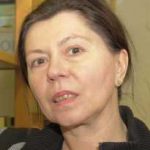
Doris Elster is the Head of the Department of Biology Education at the Institute of Science Education.
She is a Professor for Science Education (scientific background: general biology) and responsible for pre-service education of teachers of the secondary level. Her core field of research is about teacher’s professional development, implementation of school-based reforms, interest research, and inquiry based science education.
Doris Elster was partner of several European projects: CROSSNET (Crossing Boundaries in Science Education), GIMMS (Gender, Innovations, Mentoring in Mathematics and Science), FW7 Project INQUIRE (Inquiry based teacher training for a sustainable future), and the international comperative interest studies ROSE and IRIS (Interests and Recruitment in Science).
Responsible for coordination and evaluation activities in respect to Gender, Ethics and Open Access.
Email:
Julia Birkholz
Responsible for coordination and evaluation activities in respect to technolgy transfer (UFT), societal engagement and contextualization, education.
Email:
Prof. Jürgen Warrelmann
Coordinator of the Graduate School NanoCompetence
Email:
Support
Teams
The Danish Centre for Studies in Research and Research Policy (CFA) is a research centre at the Department of Political Science and Government, responsible for carrying out both basic research and long-term competence-building, together with more practical oriented analyses, evaluations and policy investigations. The centre aims to strengthen the foundations of the research advisory system and the basis for research policy decisions. The centre conducts research on the interplay between science and society, including science policy studies. CFA is also responsible for the training of researchers within its area of activities and is expected to foster and support an informed public debate on research policy issues. CFA is in particular active in the area of RRI, structural transformations, gender and implementation of gender action plans in research organizations, evaluation, capacity building, comparative studies and research policy.
She is member of the Horizon 2020 Advisory Group for Gender and of the European RTD Evaluation Network. Dr. Schmidt was involved in the ex-ante impact assessment of Horizon 2020 in the area of environment and climate change and in the ex-post evaluation of FP7 INCO. She has also been engaged in the evaluations of FP6, FP7 and Horizon 2020 project proposals and has been advisor to national research councils in different European countries.
Dr. Schmidt has been involved in a number of projects funded by the European Commission, among others EFFORTI, STAGES, PRAGES, WHIST, SS-ERC and MORE2.
It’s all about impact!Role in STARBIOS2
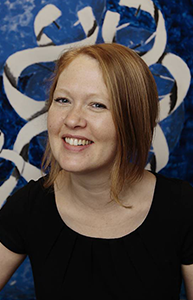
Josepine Fernow has worked with research dissemination and communication for fifteen years. She co-ordinates activities and manages STARBIOS2 external and internal communications. She is also one of the editors of Biobank Perspectives,a newsletter on current issues in biobank ethics and law. Josepine Fernow is communications manager and work package leader for several other EU-funded projects.
LSC research activities, based on a sociological approach, are focused on the radical changes affecting the models of governance in contemporary societies. The laboratory aims to produce new knowledge on the multiple linkages between society, science and technology, to support policy-makers in coping with the new societal context related to the development of information society, citizenship enhancement, etc.
The research activity is based on the assumption that society, science and technology develop within a single evolutionary process but the awareness of this link on the part of public opinion, decision-makers and scientists themselves is still low and does not produce suitable orientations and policies. LSC is engaged in promoting a strong role of sociology within technology-driven research areas, also in the framework of RRI.
Expert in anticipation theory, social theories of innovation, theories on relationship between science and society, measurement of social phenomena and structural change, he was involved mainly in three distinct areas of research: the relationship between science and technology and society – on issues such as Public Engagement, the Responsible Research and Innovation; gender equality – in particular on discrimination against women in the political and scientific research fields; the social dynamics connected with environmental sustainability – the transition toward a Low Carbon Society, the barriers to the introduction of the Environmentally Sustainable Sanitation, and management of environmental risks.
International Partners
Consultancy, advice and development of APs
Inaugurated on May 25, 1900 under the name of Federal Serotherapy Institute, Fiocruz was given the mission of fighting the great problems of public health in Brazil. Therefore, Fiocruz became a think tank concerned with the Brazilian reality and experimental medicine.
Today the institution is responsible for a range of activities which include research development; highly-regarded hospital and ambulatory care services; production of vaccines, drugs, reagents, and diagnostic kits; education and training of human resources; information and communication in the area of health, science and technology; quality control of products and services, and the implementation of social programs. It has over 11,000 employees and health professionals with different levels of involvement, a workforce proud of being at the service of life.

Luiz Carlos Jr. Alcântara coordinates Fiocruz group, formed by Postdocs, PhD, MSc, and Junior Research fellowships all engaged in bioinformatics or biotechnology educational programs.
The group has put an effort to generate the whole genome sequences of HTLV-1 and more recently of the arboviruses DENV, CHIKV and ZIKV. Experts in Bioinformatics help on the analysis to elucidate the introduction of the viruses into the Americas, establishing temporal and regional origins. Additionally, the group investigates correlation between viral genetic findings and disease outcome. In this regard, the group wishes to identify viral and cellular molecules involved in the pathogenic process that could be useful for therapy and vaccine strategies.
- University System of Maryland
Technical Assistance
Learning Process
Implementing a local Action Plan 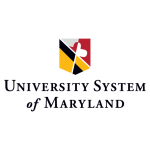
By conducting internationally recognized research to cure disease and to improve the health, social functioning and just treatment of the people we serve, we foster economic development in the city, state, and nation. We are committed to ensuring that the knowledge we generate provides maximum benefit to society and directly enhances our various communities.
- International Centre for Genetic Engineering and Biotechnology
Technical Assistance for APs
Learning Process
Implementing a local Action Plan 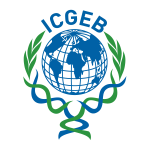
The ICGEB provides a scientific and educational environment of the highest standards and conducts innovative research in life sciences for the benefit of developing countries. It strengthens the research capability of its members through training and funding programmes and advisory services and represents a comprehensive approach to promoting biotechnology internationally.

Dr. Zerbini serves as Interim Director of the ICGEB Cape Town component and is the head of the Cancer Genomics Group. The overall goals of the laboratory are to utilize genomics and proteomics tools and signal transduction resources to accelerate comparative analysis of aberrant gene expression in carcinogenesis and to study alterations in signal transduction pathways during development of cancers. Areas of research include: regulation of gene expression by transcription factors, the role of receptor tyrosine kinases in cancer malignancies and gene translocations. Dr. Luiz Zerbini is a project leader in several research grants funded by institutions around the globe including as National Institute of Health (USA), National Research Foundation (South Africa) and European Union.
He is responsible for managing all the STARBIOS2 activities at the ICGEB that include the implementation of a Responsible Research and Innovation Action Plan.




